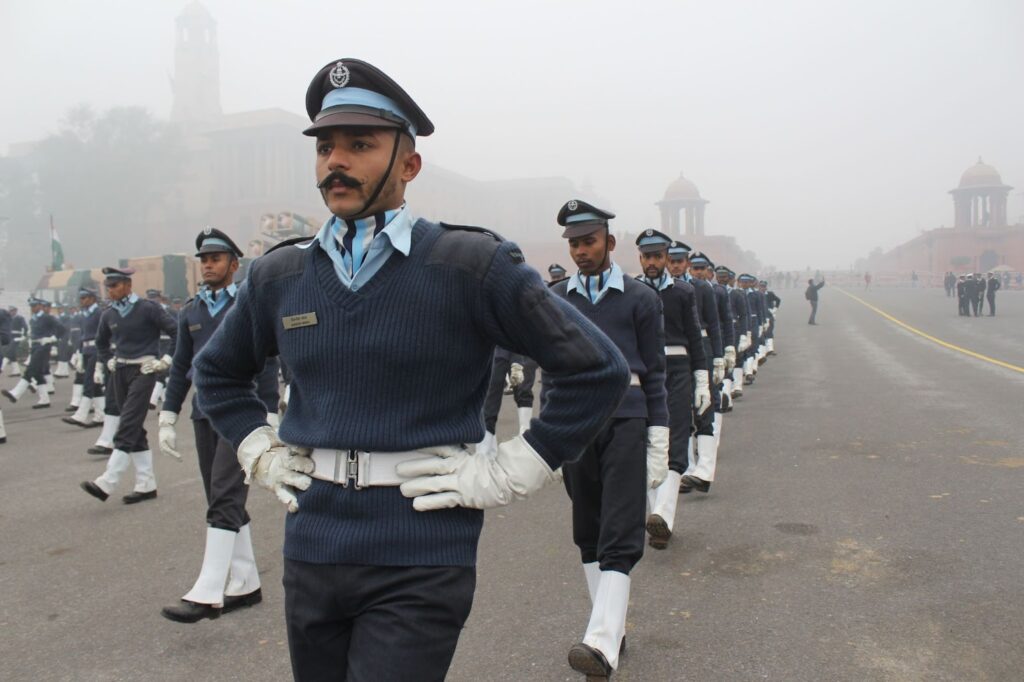Preparing for a Career in Civil Services – A Step by Step Guide

Introduction

What does a Civil Service Officer do?
Do you ever think about how much our country has progressed? The need to have a proper law and order system and the kind of administration one needs to run the country? Civil Service Officers have a huge hand in making all of that possible. From ensuring public safety to overseeing the country’s expenditure, a Civil Service Officer does it all! As a Civil Service Officer, you will determine and carry out policies proposed by the Indian Government for the welfare of the country.
Should You Choose Civil Service as a Career?
The advantages of pursuing Civil Service as a career are endless! A Civil Service job comes with job stability, retirement benefits, health and life insurance, and a handsome salary. From being a “society approved” path to a high-paying position, it promises to be the ideal job. Even in modern times, Civil Services has held its position with a pinnacle of opportunities. In fact, that position has been solidified more than ever with the ever-growing change in the lives of the people. It is because of Civil Service Officers that we are able to run the country. It is because of civil service and its many fields that the world is where it is.
However, it is a tedious course that requires a lot of hard work and dedication. According to UPSC records, students take an average of more than two attempts to pass the exam. So unless you have a keen interest in the field, it will be difficult to cope up with the pressures of the course. If you’re confused, take an in-depth psychometric test to understand if your interests truly lie in this field. We’d be happy to help you figure them out!
Get expert guidance and mentorship towards your perfect fit.
How to prepare for the Civil Services Exam
On average, students begin preparing for UPSC right from high school. However, while you may study for years, there is no guarantee that you will pass easily in one attempt. It all depends on your interest in the field and your ability to study for it. There have been students who have sailed their way to remarkable positions with just a year of preparation, while some have struggled for a decent score for years. If your concepts from school and college are clear, love for civil service is in place, and you prepare with absolute dedication, it is easy to crack UPSC. For information on how to apply for the Civil Services Exam, click here.
Step One: Know the Basics of the Exam
It’s important to understand the ins and outs of the exam you’ll be appearing for! For starters, you need to meet two conditions to appear for the Indian Civil Service Examination. One, you need to be an Indian citizen. And two, you need to be between the ages of 21 and 30 years. The exam is divided into two parts: Part 1 is the preliminary examination, and Part 2 is the main examination.
a) Preliminary Examination
Even though the results of this exam will not be included in your final UPSC result, it is the first step of the examination. There are two parts to this exam, for 200 marks each. You’ll begin with a general test that’s designed to assess your general knowledge of topics such as Indian economy, geography, history, politics, technology, international relations, and current events, among others. The second exam is an aptitude test that measures your ability to think critically, reason, and make decisions.
b) Main Examination
This is UPSC’s final and most important examination! This exam consists of nine papers, two of which are language-based qualifying papers for 300 marks each. Paper A will be based on any Indian language, whereas paper B would be based on English. The remaining seven papers are listed below.
Paper 1: Essay
Paper 2: General Studies I (This will cover Indian heritage and culture, history and geography of the world and society)
Paper 3: General Studies II (This will include topics like governance, constitution, polity, social justice and international relations)
Paper 4: General Studies III (This will cover technology, economic development, biodiversity, environment, security and disaster management)
Paper 5: General Studies-IV (This will include ethics, integrity, and aptitude)
Papers 6 & 7: Two papers on subjects you can choose from a list of optional subjects (This includes a list of 26 optional subjects, such as Agriculture, Animal Husbandry, Veterinary Science, Anthropology, Botany, Chemistry, Civil, Engineering, Commerce, Accountancy, Economics, Electrical Engineering, Geography, Geology, History, Law, The literature of any one of the Indian languages, Management, Mathematics, Mechanical Engineering, Medical Science, Philosophy, Physics, Political Science, International Relations, Psychology, Public Administration, Sociology, Statistics or Zoology)
Give yourself around a week to learn about the exam schedule, syllabus, and other exam details. Another exercise you can try out before beginning preparation is to look over papers from previous years and familiarise yourself with the questions that will be asked on the exam!
Step Two: Strengthen Your Foundation
Now that you know how the questions will be asked, start preparing! Begin by reading NCERT textbooks from classes VI to XII. Every year, around 15 questions are asked directly from the NCERTs; so don’t skip them! Click here for a list of NCERT textbooks for your exam preparation. Build a daily newspaper reading habit around this time as well!
Step Three: Build On Your Foundation
Start by reading the required textbooks for each subject. Always remember to keep your resources to a bare minimum in order to have enough time for revision. Read one book for each subject and go over it again and again.
Step Four: Revision Is the Key
Given that the syllabus is so complex, you’ll need to constantly revise in order to remember all you’ve read. Keep your weekends free to revise what you’ve read during the week. Aside from that, keep up with the thorough revision of current affairs and other subjects!
Step Five: Practice to Improve
Start practising your answers when you’ve completed around half of the syllabus. The concept of completing the entire curriculum is a myth, and you will never be able to do so! Set a target of finishing 70-75 percent of the syllabus and revising it several times. Try to write good responses; you can get ideas for your answers by looking at the toppers’ answer key. Always have your responses reviewed by your mentors so that you can learn how to improve!
Step Six: March towards Prelims
Adopt a mock-test-based learning technique in this final round of preparation, as well as a thorough revision of material that is solely focused on the prelims. Compile a list of current events and all of the core subjects, as well as the sample examinations. Don’t forget about CSAT. Although it is only a qualifying exam, a score of 66 or above on that paper is required to appear for Prelims.
Step Seven: Practice for Mains
Once the preliminary examination is done, take a week off to rest and prepare for the Mains. The UPSC Mains are generally held around June. Start by going over your optional subject and working on your weak areas. Write thoughtful answers and have them assessed by your mentors. It will enable you to evaluate your writing abilities. At the same time, start updating your notes and standard text notes. Don’t read anything new at this stage; instead, go over what you’ve already written in your notes.
Step Eight: Interview Preparation
Read your DAF (Detailed Application Form) carefully before the interview and prepare all of the typical questions ahead of time. To be vigilant throughout, you should be extremely confident in yourself, concentrate on your soft skills, polish your personality, and read newspapers on a regular basis.
What happens after your interview?

After you clear the UPSC Interview, you will receive fundamental training at Lal Bahadur Shastri National Academy of Administration, Mussoorie. During this period you will learn about the political, legal, constitutional and socio-economic framework of India. Here, guest speakers from various parts of the government on their areas of expertise will offer lectures.
You will also visit local villages.This includes visits to the local hospitals, farms, village schools and panchayats. This will give you first-hand experience to understand the people you serve. You will be expected to study and submit assignments, and appear for mid-term and end-term exams on the basis of what you observed during your training period. After you’ve successfully completed your training period, the next step is the probationary training for another 20 months. This is organised at the district level, where you get to learn your duties in detail. One you’ve completed all the stages of your training, you will go to the Rashtrapati Bhavan and collect your joining letters from the President of India!
Get expert guidance and mentorship towards your perfect fit.
Career options within Civil Services

Here are some of the top civil service positions you can apply for once you complete your training:
1. Indian Administrative Service (IAS)
Even today, there are small secluded alleys and people at society’s dead ends who have urgent needs and require various forms of government assistance. This is when an IAS Officer comes in.
As an officer in the Indian Administrative Service, you would be responsible for keeping track of administration activities under the Indian government, supervising government affairs, keeping track of total expenditure, and assisting those in need. Sounds exciting? Then this could be the perfect career option for you!
How much does an IAS Officer earn?
If you are able to get a job as an IAS Officer, you can expect an average salary between 56,100 to 2,50,000 per month.
2. Indian Police Service (IPS)
If nabbing criminals and maintaining law and order excites you, becoming an IPS officer may be the perfect career choice. As an Indian Police Officer, you will be responsible for preventing crimes, counter-terrorism, tracking smuggling and corruption offences and maintaining public peace.
How much does an IPS Officer earn?
If you are able to get a job as an IPS Officer, you can expect an average salary between 56,000 to 2,50,000 per month.
3. Indian Forest Service (IFS)
If you are a nature lover who wants to help maintain and manage our country’s wildlife habitats, the Indian Forest Services can be a good fit.
As a member of the Indian Forest Services department, you will be in charge of overseeing various initiatives inside a forest area, nurturing and safeguarding species while ensuring there is no illegal poaching or destruction.
How much does an IFS Officer earn?
If you are able to get a job as an IFS Officer, you can expect an average salary between 44,000 to 2,00,000 per month.
4. NDA and Defence Services
If somewhere down the line you’ve felt a pull towards the tricolour and its soldiers, felt the urge to serve your nation and protect its people, then this is the path for you!
As a part of the Indian Armed Force, you will guard our country against internal and external threats. You will work on rescue missions and help your country’s citizens during disasters and calamities.
How much does an NDA and Defence Services Officer earn?
If you are able to get a job as an IPS Officer, you can expect an average salary between 56,000 for an entry level position to 2,50,000 for a senior level position per month.
Conclusion
Confused about choosing Civil Service as a career? We at Mentoria work with experts to give you proper career guidance and help you discover what you will truly enjoy and excel at. Sure, it might seem scary at first but it is not impossible with the right people helping you in your journey.
Our career counsellors are psychologists, educators and HR experts who are rigorously trained to guide you towards careers that fuel your passion. Our counselling sessions also enable you to determine your strengths and development areas, and our counsellors share a relevant action plan for you to work on those development areas. We also offer webinars by industry experts who share their own career journeys and help you get a deeper perspective of what your chosen career involves.
Want to find out if your future looks bright in civil services? Meet our experts to find out!







